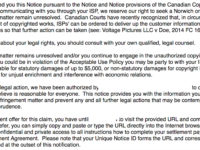The Ontario Book Publishers Organization recently published a study funded by the OMDC on the use of Canadian books in English classes in Ontario Public and Catholic schools from Grades 7 to 12. The study surveyed teachers and school boards on which books (including novels, short story collections, creative non-fiction, poetry and plays but not textbooks) are taught in English classes. The goal was to see whether Canadian books were included in class lists. The survey generated hundreds of responses (27 from school board participants and 280 from the Ontario Teachers Federation) resulting references to 695 books by 539 authors.
The OBPO argued that the takeaway from the study is that Canadian books are not well represented in Canadian classrooms since less than a quarter of the mentions referred to a Canadian work and none of the top 10 works were Canadian. While that suggests that there is considerable room to increase the presence of Canadian works in the classroom, the data in the study can be used for other purposes. Working with Sydney Elliott, one of my research assistants, we reviewed the OBPO data to identify the presence of public domain works in Ontario classrooms (ie. the use of works for which the term of copyright has expired).











